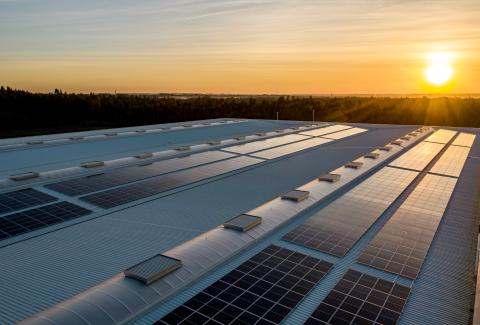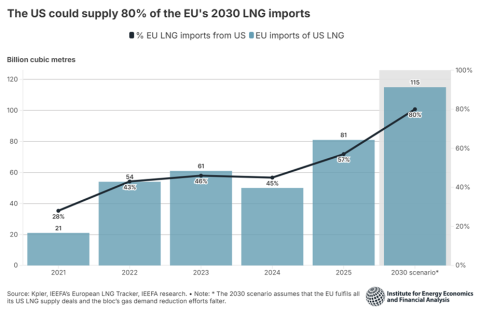IEEFA: New York State Comptroller DiNapoli takes the lead on fossil fuel divestment
New York State Comptroller Thomas P. DiNapoli took a bold step this week by moving to end investments in the riskiest oil and gas stocks—those unable or unwilling to get out of fossil fuel production. For many years, fossil fuel investments provided strong returns, ensuring that the state pension fund was solvent and retirees were paid. Times have changed. The energy sector used to command 28% of the S&P 500; today, it amounts to 2.3%.
If companies don’t meet investment criteria, they will be passed over
The comptroller’s plan to systematically review each fossil fuel subsector and assess climate risk is a prudent approach that will help the fund achieve its annual financial targets. DiNapoli has talked with fossil fuel companies for a long time. Most turn a deaf ear to legitimate concerns—low returns, no vision and hostility toward environmental and climate impacts. DiNapoli is giving the companies one more chance. If they can’t meet simple, sound investment criteria, then they will be passed over because they present too much risk. If the companies turn around, the New York fund will invest in them again.
The comptroller runs a $226 billion fund, one of the largest in the country. It serves a local need, but investments are global in scope. DiNapoli is using a global lens to open discussions with companies throughout the portfolio about their use of fossil fuels. How does Google get its electricity? Is Coca-Cola paying attention to its plastics consumption? He recognizes that climate impact involves more than just the fossil fuel companies.
Why is DiNapoli taking this step? For most of the last decade, the oil and gas sector has been at the bottom of the stock market. They have been firmly in last place for the last four years. The price of oil is down and any increases are likely to be meager. The buying and selling of assets to consolidate the industry is producing anemic prices, and the outlook is negative.
DiNapoli is also aware that the oil and gas sector is losing out in the competitive reshuffling that is taking place during a time of fundamental change in the economy. Wind and solar power has displaced coal and is beginning to take market share from natural gas in the electricity sector. Electric vehicles now absorb significant amounts of auto industry capital and are gaining modest amounts of market share worldwide. Plastics recycling and bans on single-use products are growing.
DiNapoli must stay on top of market shifts
Economic policy discussions led by New York Gov. Andrew Cuomo are charting a more environmentally-responsible course—a ban on fracking, curtailing the use of plastic and paper bags, and the recent rejection of the Williams fracked gas pipeline all point to new economic realities. DiNapoli must stay on top of these and other market shifts.
Finally, DiNapoli has unique responsibilities as steward of New York State’s investments. He is the sole trustee of the state pension fund and has a seat on the $120 billion New York State Teachers’ Retirement System. He has reached out to Sen. Liz Krueger, D-Manhattan, who has galvanized opinion in the Legislature. DiNapoli has worked with other pension funds and CERES, a powerhouse Massachusetts-based coalition that is building a sustainable economy. He has never shut his door on anyone, even as policy disagreements have grown fierce.
As the Paris Climate Agreement turns five years old, Comptroller DiNapoli is now telling the people of New York and his colleagues in the institutional investment world that the moment has arrived to answer two simple questions first posed two millennia ago by a Jewish sage: If not us, who? And if not now, when?
It is likely that more institutional funds will follow suit.
Tom Sanzillo is IEEFA’s director of financial analysis.
This commentary appeared originally in the New York Daily News on December 9, 2020.
Related items:
IEEFA report: Proposed NESE gas pipeline may stick New York ratepayers with one billion-dollar+ cost
IEEFA: Proposed NESE Gas Pipeline in New York: A Bad Bargain for Ratepayers and Taxpayers
IEEFA update: Andrew Cuomo got it right on New York’s fracking ban















